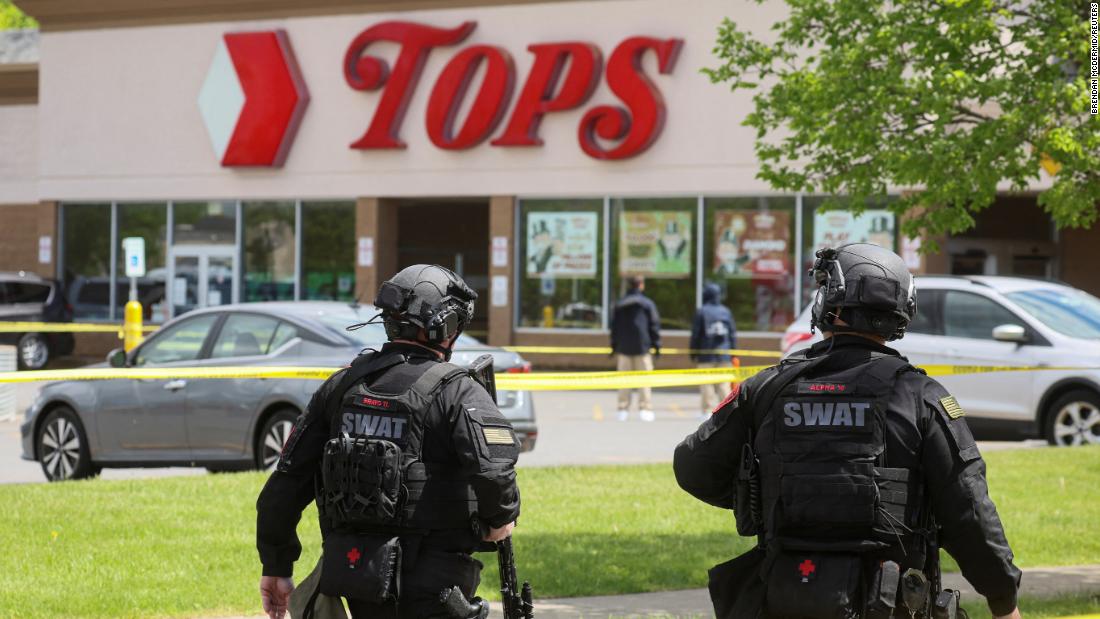Despite years of exposés that show how extremists operate, piles of research that document how radicalization occurs, countless hearings and reports on the dangers posed by right-wing extremism, the threat has continued to grow. Right-wing extremist attacks make up the majority of terrorist attacks and plots in the US since 1994, according to the Center for Strategic and International Studies, and it is an escalating threat: 2020 and 2021 saw the highest number of plots and attacks on record, a CSIS official recently told ABC News.
In the wake of a horrific event like the Buffalo massacre, people understandably hope and search for a panacea, a prescriptive solution they can advocate for to prevent it from happening again. But the problem of radicalization and right-wing violence is a deeply entrenched and difficult one, one with complexities that require a society-wide approach across political and social institutions to address.
Why is it so hard to make progress when it comes to right-wing domestic terror? It's not that experts haven't developed ideas or suggestions. They've mapped out the networks, identified vulnerable communities, made policy recommendations for government and media companies and created resources for deradicalization, including guides for parents worried about their children encountering extremist networks online. But what they haven't done -- what they likely cannot do -- is disincentivize the wide range of actors who are invested in thwarting anti-extremism efforts.
There are obvious contributing factors suggested by the murderous violence in Buffalo: racist and eliminationist conspiracy theories, easy access to semiautomatic rifles, online radicalization, potential mental illness and isolation. The cumulative effect of these suggests the need for a multilevel approach to prevent future violence, one that ranges from better content regulation on social media and robust educational resources to gun reform and investment in a range of community services to help connect people to aid and to one another.
But as we've seen time and again, politics have become a major barrier to efforts like these. Even identifying right-wing extremism has been a challenge. In 2009, when the Department of Homeland Security
issued a report on the rising danger of right-wing extremism, it triggered such a
powerful backlash from right-wing media and Republican lawmakers that the report was withdrawn and DHS Secretary Janet Napolitano
apologized after its release.
In more recent years, Republicans have played down acts of right-wing violence, from former President Donald Trump's soft-pedaled comments about the riot in Charlottesville, Virginia, to the current insistence that the people involved in the insurrection were engaged in "legitimate political discourse" and they are now "
political prisoners." Congress is currently considering the
Domestic Terrorism Prevention Act of 2022 to expand government resources for studying far-right extremism. But while the bill passed with bipartisan support in the House -- it has three Republican co-sponsors -- it faces an uphill battle in the Senate.
On gun regulation, the Republican opposition is so solid,
despite public support, that the subject barely makes the news cycle, even after a horrific attack like the one in Buffalo. Though many conservatives
insist that the real issue is mental illness, not easy access to guns, they
have also opposed regulations that would make it harder for people dealing with mental illness from acquiring weapons.
A number of conservatives also resist any argument that implicates part of their mainstream ecosystem, whether Republican lawmakers or right-wing media stars, for the spread of racist conspiracy theories that emerge from (or embrace) violent ideologies. But the connections are real: the Great Replacement conspiracy theory has
gained traction on the mainstream right, which gives it a kind of legitimacy and visibility that makes radicalization easier.
Beyond politics, there are other barriers to the kind of public understanding necessary to grapple with right-wing domestic terrorism. In her book, "
Bring the War Home: The White Power Movement and Paramilitary America," Kathleen Belew carefully details the difficulty Americans have had in understanding this kind of violence as part of a broader social movement, rather than a series of actions undertaken by unrelated lone-wolf actors.
Experts such as Belew
and others have done considerable work to expose the connections between far-right organizations and the growing number of right-wing massacres in the US, but the lone-wolf mythology still has power in the public discourse over these bouts of violence.
The other challenge comes from a broader development in the US: increasing failure by government to invest in services that help sustain more resilient communities. Social and economic dislocation contributes to radicalization, as extremist groups manipulate feelings of loneliness and fear to draw people into their movement. In a country that has been wracked by multiple compounding crises, from the 2008 financial collapse to the Covid-19 pandemic to the January 6 insurrection, investment in community services is more necessary than ever. But we also live in an era where
funding for state and local programs is
constantly being slashed and social services
are being privatized, making it more difficult for people to access the care and support they need.
That endeavor is made more difficult by staunch conservative opposition to necessary reforms. Which doesn't mean it will be impossible to defang right-wing radicalism, but rather that Americans will have to enact systemic changes over the long-term to bring that violence under control. That will require significant action from government to curb the availability of weapons of war and fund struggling communities, from media companies to make it more difficult to be pulled into a web of radicalization, and from communities to create spaces of connection and support. It is not an easy project, but it is a vital one.

No comments:
Post a Comment